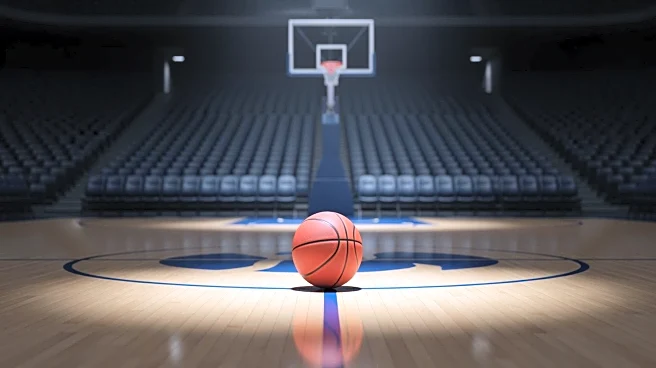What's Happening?
Shedeur Sanders, a rookie quarterback for the Cleveland Browns, chose to respond silently to media inquiries following the promotion of Dillon Gabriel to starting quarterback. Sanders, who was a star college quarterback at Colorado under his father, Deion Sanders, was drafted by the Browns in the fifth round. Despite his college success, Sanders remains the third-string quarterback behind Gabriel and veteran Joe Flacco. The Browns' decision to start Gabriel comes after a 1-3 start to the season under Flacco. Sanders' silent response to reporters is seen as a creative way to handle questions about his position on the depth chart.
Why It's Important?
The situation highlights the competitive nature of NFL team dynamics and the pressure on rookie players to prove themselves. Sanders' choice to remain silent could be interpreted as a strategic move to avoid controversy, especially after comments he made about his capabilities compared to current NFL starters. This incident underscores the challenges faced by young athletes in managing public perception and media scrutiny. The Browns' decision to change their starting quarterback could impact their season trajectory, affecting team morale and performance.
What's Next?
As the Browns move forward with Gabriel as their starter, Sanders will continue to serve as the third-string quarterback. His future opportunities may depend on Gabriel's performance and any potential injuries or changes in team strategy. Sanders' approach to media interactions may influence how he is perceived by fans and analysts, potentially affecting his career trajectory. The Browns' management and coaching staff will likely monitor the team's performance closely to make further decisions.
Beyond the Headlines
Sanders' silent response may reflect broader themes of athlete media relations and the pressures of maintaining a public image. It raises questions about how athletes navigate criticism and expectations, particularly when they are in the early stages of their professional careers. This incident could lead to discussions about the role of media in sports and the impact of public scrutiny on player development.










